Control Your Pets Pain with PRP Treatments
Written by Dr. Derby
As both veterinarians and pet owners, we have all wished that our furry family members could be with us longer, and that the extra time would be quality time. 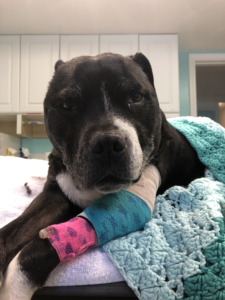 At River Road Animal Hospital we are always looking for ways to improve on that quality time. Managing orthopedic pain in our patients is high on our list of priorities, and we are constantly learning new modalities to help with that. Recently, we have started performing more joint injections to help with arthritis and injuries, such as torn cruciate ligaments, both of which can be debilitating for our pets.
At River Road Animal Hospital we are always looking for ways to improve on that quality time. Managing orthopedic pain in our patients is high on our list of priorities, and we are constantly learning new modalities to help with that. Recently, we have started performing more joint injections to help with arthritis and injuries, such as torn cruciate ligaments, both of which can be debilitating for our pets.
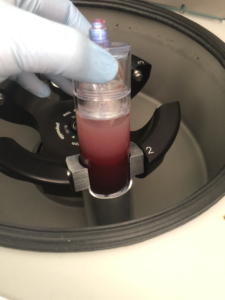 One of the best new technologies for pain control is a process called Platelet Rich Plasma treatment (PRP). While PRP itself is not new, it has only recently become more available in general practice.
One of the best new technologies for pain control is a process called Platelet Rich Plasma treatment (PRP). While PRP itself is not new, it has only recently become more available in general practice.
PRP takes blood from the patient, and spins it down in a specialized machine, to produce a highly concentrated blend of platelets and growth factors. These encourage the proliferation of healthy cells and decrease inflammation caused through the disease process. The concentrated cells are injected directly into the area that is causing discomfort, thereby enhancing the body’s natural healing response.
PRP, when appropriate, is less invasive, has a shorter recovery time, and can be more cost effective than most surgical procedures. 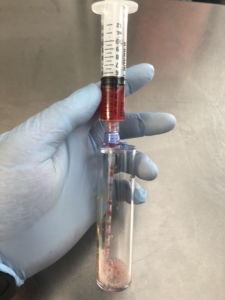 It is also an excellent option for patients who have other health concerns that make them poor surgical candidates.
It is also an excellent option for patients who have other health concerns that make them poor surgical candidates.
Some of the conditions for which PRP treatment has proven successful include tendon repair, pain reduction, improving symptoms of osteoarthritis, and decreasing general inflammation. A number of studies indicate that PRP can be made more effective when coupled with Cold Laser Therapy. In our own practice, we have found that the best outcomes occur when PRP is followed by 5 weeks of cold laser therapy. 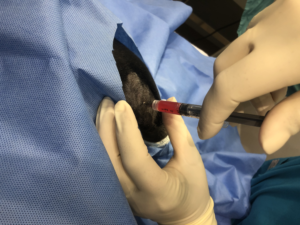
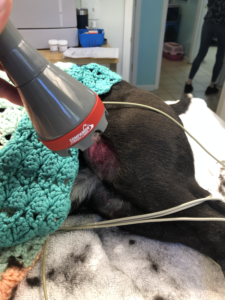 We are seeing fantastic results with PRP treatment and are so excited to be able to offer this promising new treatment method to all of our wonder furry family members. If you think your pet may benefit from PRP, or just have questions, please contact us!
We are seeing fantastic results with PRP treatment and are so excited to be able to offer this promising new treatment method to all of our wonder furry family members. If you think your pet may benefit from PRP, or just have questions, please contact us!

DVM – Owner / Veterinarian



